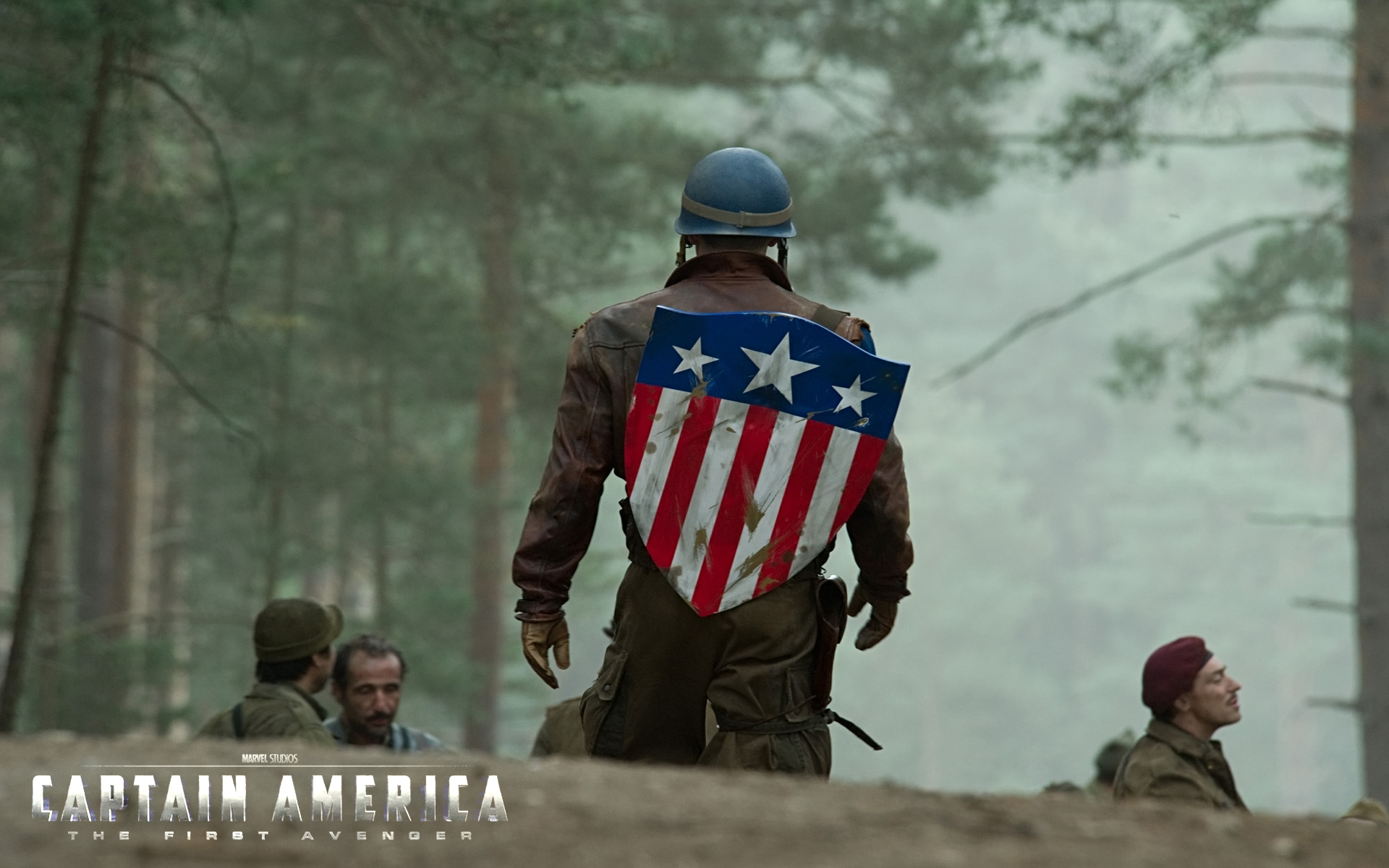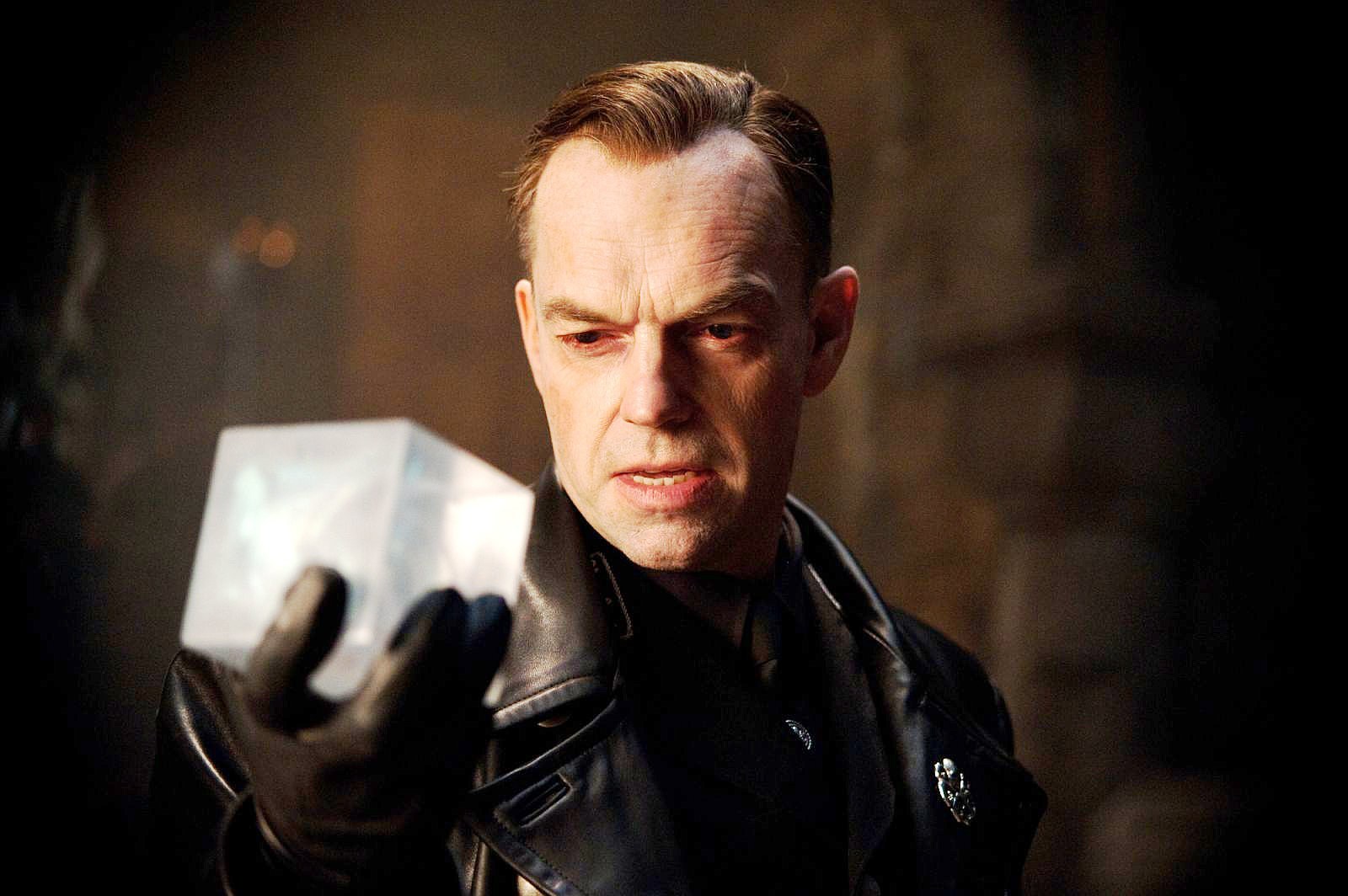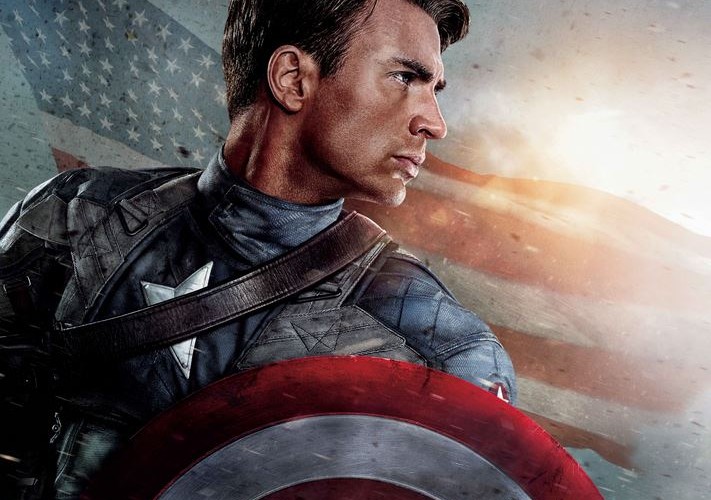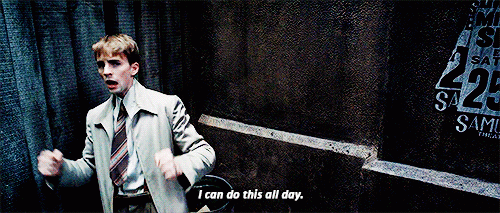There was a time in film where good guys were just good guys because they stood tall, spoke with certainty, and always got the girl. Like any medium transitioning through the decades, the definition of a movie “good guy” (and “bad guy”) changed with the times. For that reason, many movie web sites and industry speculators viewed Captain America: The First Avenger as a risk for the then burgeoningng Marvel Studios. Captain America was considered too pragmatic a protagonist for today’s audiences. But to really understand why the film was viewed as such a gamble you’d have to look back at the leading man landscape of the time.
In 2011, the brawny, self-assured action star of the ’80s and ’90s had given way to the diminutive, reluctant hero. At this point, the Harry Potter franchise had been dominating the box office with its brooding boy wizard at the forefront, the spastic Sam Witwicky (played by Shia LaBeouf) anchored the Transformers franchise, and the Twilight series multiplied its angsty male model quotient with each new installment. And let’s not forget that the openly untrustworthy Jack Sparrow was the king of the box office while the alcoholics of The Hangover bumbled on for two very successful sequels. Movie audiences had spoken. The 2011 ticket buyer didn’t want their heroes strongheaded like the Schwarzeneggers, Waynes, and Eastwoods of yore. They wanted their main characters rife with uncertainty and anxiety. How could the no-nonsense Captain America stand a chance against such not-so-stiff opposition?
I suspect that it is for that reason that First Avenger came off deliberately quaint — swelling with unabashed patriotism and heroics during a period when Hollywood stumbled to justify such things. The films released after 9/11 depicted the US as beleaguered survivors of terror. That gave way to Hollywood reevaluating that narrative once the subsequent War in Afghanistan was underway. Understandably, the plots and heroes of action films shifted. Jason Bourne went from unrelenting amnesiac who got the girl (in Bourne Identity) to unwitting lab rat who caused the death of those he loved (in Bourne Supremacy). Over in the DC film universe, Christopher Nolan’s Batman transitioned from emboldening himself (in Batman Begins) to disillusioned by the role he played in the escalating chaos (in The Dark Knight). Similar to the action and crime films released during and immediately after Vietnam, Afghanistan changed how genre movies were plotted. The American establishment once again became the bad guy. Not terrorists. Not drug lords. Not street thugs. Back then, nothing could be more evil than those we trusted to protect us.

Directed by Joe Johnston and starring an irreplaceable Chris Evans in the title role, Captain America: The First Avenger zeroes in on the shrimpy yet plucky Steve Rogers. Rogers is a proud Brooklynite who simply wants to join the military during World War II. Unfortunately for him, he’s seen as a less than ideal candidate for service in terms of physique. He is however ideal for an experimental super soldier serum. Funded by Uncle Sam, the serum turns Rogers into a living, breathing star-spangled publicity machine dubbed “Captain America”. This takes him even further away from the frontlines though. Which in turn fails to garner respect with the actual soldiers on the ground.

Meanwhile, Johann Schmidt isn’t too far behind. The head of Hitler’s science division, Schmidt has grown tired of The Führer’s idealistic war. Schmidt — the once-willing subject of government experimentation himself — sets out on his own plan of aggressive world domination by forming Hydra, an army of stormtroopers with dark magic and science at the ready.
Can Rogers win the respect of the troops soon enough to squash Hydra before they enter the war? Of course he can. He’s Captain America. And the movie makes one hell of an amusing argument for why he can.
Plenty of modern filmmakers have tried to re-encapsulate the spirit of the adventure films from Hollywood’s golden era (Raiders of the Lost Ark, Sky Captain and the World of Tomorrow and The Mummy series, come to mind), but only a few have come as close as the The First Avenger. A lot of that has to do with director Joe Johnston, who already established his flare for the nostalgic with films such as The Rocketeer. Similar to that movie, Johnston recaptures the energy of classic Hollywood by using old school sensibilities. There is a deliberateness to the pacing of Captain America that is rare in today’s action/adventure. Every scene moves through plot and character smoothly and genuinely. This film isn’t in a hurry because it means every line that is uttered by every actor. Then composer Alan Silvestri (Predator, Back to the Future) steps in and officially turns it all into a sweeping drama — propelled by its own earnestness. While this style of filmmaking was anything new, it was definitely a notable departure from the frantically cut, shaky-cam action movies of 2011.
Created in 1941 by Joe Simon and Jack Kirby, Captain America is unique in that he belongs to comics’ golden age as well as cinema’s. That’s right. The character is legitimately old enough to have been featured in his own film serials (above) — the not too distant cousin of the superhero comic. With First Avenger, Johnston, along with screenwriters Christopher Markus and Stephen McNeely (Pain and Gain), play up this fact by letting the movie’s plot unravel similarly to “chapter plays”. This goes beyond just a passing nod. The filmmakers actually embrace the idea of the never-ending cliffhanger. Action sequences don’t end because they aren’t meant to. They are meant to lead the audience into the next adventure. This is clearest by the time we hit Captain America‘s finale, where our hero finds himself transported to the modern world as the screen abruptly cuts to the end credits.
Opening on July 22, 2011 and ending its initial run with a respectable $370.6 million, Captain America: The First Avenger managed to score a bit higher overseas ($193.9 million internationally) than it did in the US ( $176.7 million in North America). Not bad for a comic book movie with the word “America” in the title. If anything, this success proved to Marvel Studios that theatergoers across the world didn’t simply view Captain America as US propaganda. They saw him as a much-needed nostalgic break from uncertainty. By dismissing contemporary trends Captain America: The First Avenger brought the more traditional elements of the action film back full circle. This approach is a testament to how much Marvel believes in their characters as well as how certain they are of their place in popular culture. It is also proof that the classic good guy archetype wasn’t dead after all. Appropriately enough, he was just catching his breath — laying in wait for his big comeback.


